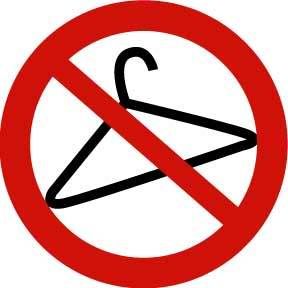Set aside the bizarre use of Ezekiel 37, if you will. Set aside the toxic, piecemeal literalism that would lead one to interpret "I will settle you in your own land" as a literal reference to Jewish people resettling in Israel, but read "you, my people, will know that I am the LORD, when I open your graves and bring you up from them" from only one verse prior and not think of zombies. If this had literally happened, post-WWII Israel would have been settled by people who were actually killed in concentration camps, not by people who lost their families there.
At least the bones aren't naked now, because skin literally (and infallibly!) means a parliamentary system of government? Let it go.
Set aside the even more bizarre notion that modern Israelis don't know how they got to Israel. You, dear reader, may or may not be Israeli, but perhaps you know that you can look up things like the British Mandate for Palestine on the interwebs. Set aside, too, the odd phrase "they are back in the land." Who are "they," in this context, when the majority of Jews don't live in Israel? Also, perhaps Netanyahu is married to three women simultaneously- a patriarch, just like Abraham, with a perfectly Biblical understanding of marriage?* I don't think that's the case, though, because I don't think that's Netanyahu's brand of crazy. Somehow, it doesn't seem to be Jewish people who insist upon dragging such nonsense into the modern era.
Polygany for wealthy men- it's in infallible scripture! Ok; let it go.
Jerusalem is never mentioned in the Koran.
What makes something relevant?
I mean, we could point out the obvious: Muhammad wrote the Qur'an, and he seems to have died before the Islamic Empire reached Jerusalem. So, while the Hebrew Scriptures contains lots of passages about being in Jerusalem or wanting to be back in Jerusalem, the Qur'an doesn't have anything like that. Because they hadn't been there yet. This is like trying to explain blue sky to someone wearing orange glasses, though: Look, Chalcedon is important to Christians because Christians did important things there. It's not in the Bible because the Bible was written before the Christians did those things. Similarly, Jerusalem is important to Muslims because Muslims did important things there; those things aren't recorded in the Qur'an because the Qur'an was written before they did those things. How can something so obvious even need to be said?
In bizzaro-orange-glasses world, though, such banal linearity does not apply. Things are not true because they happened; things are true because they can be read about or read into a particular book. Places aren't of importance just because people understand their loving, working, and dying within that geographical context; places matter because they can be looked up in the index at the back of a textbook with gilded edges. If the book can be read or misread to say that the sky is brown, no amount of you pointing out the window at the blue sky makes a difference. The story that Muslims tell is the story of their ancient book, full stop. The story that Jews tell is the story of their ancient book, full stop. And heaven help us all if Christians act as though anything important has happened to the church since John the Revelator was sent to sea.
In other words, in bizarro-orange-glasses world, there is no continuing story outside the text, and the text is assumed to contain all the assumptions of the orange glasses wearer. All the important things that have ever been done and ever will be done have been written down in a special orange glasses compatible code. In secular terms, this would be like saying that Gettysburg is an important place because we have a copy of the address that President Lincoln gave there, and then inferring from a literal read of the address that devotion was being physically measured out in cups. And then proclaiming that the point of the Gettysburg address is that we should measure liquids according to the English system, because the metric system is an abomination- if liters weren't good enough for Civil War era soldiers, then they're not good enough for us! And then disenfranchising anyone who thinks that sounds crazy.
"All scripture is given by inspiration of God, and is profitable for doctrine, for reproof, for correction, for instruction in righteousness." An interpretative method that disguises importing human created doctrine as 'studying scripture in the light of scripture' is in direct contradiction to this teaching. Ezekiel 37 is given by inspiration of God; the nonsensical interpretations clamped upon it like barnacles on a ship are not.
And goodness, the Muslims don't have to have a proof text for the importance of the Dome of the Rock to them. Being People of the Book doesn't mean that any of us have to be people only of the book.
---
*This would be a good place to say that I read Bro. Cloud even though I disagree with pretty much everything he writes, largely because he's not a tool. That is, he doesn't criticize Netanyahu's three marriages, but then ignore the fact that Reagan was the USA's first divorced and remarried president. He's not, you might say, a respecter of persons; I like that about his work.
---
*This would be a good place to say that I read Bro. Cloud even though I disagree with pretty much everything he writes, largely because he's not a tool. That is, he doesn't criticize Netanyahu's three marriages, but then ignore the fact that Reagan was the USA's first divorced and remarried president. He's not, you might say, a respecter of persons; I like that about his work.





